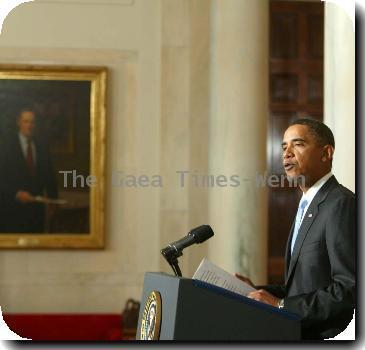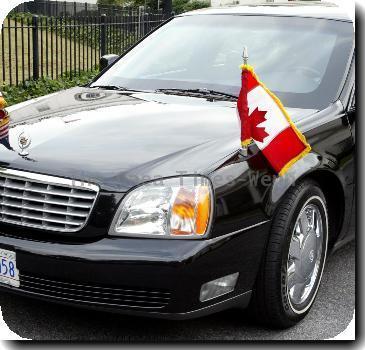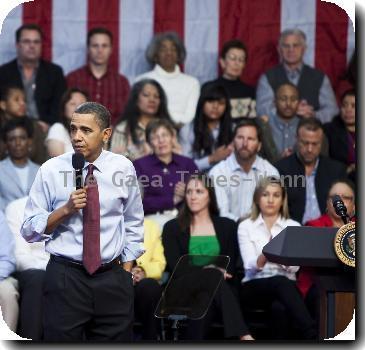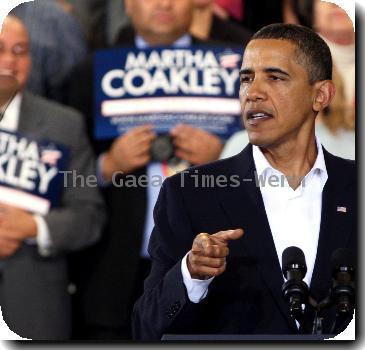Obama pledges quick high court nominee to replace Stevens; summer confirmation battle seen
By Mark Sherman, APFriday, April 9, 2010
Summer battle ahead for Stevens’ court replacement
WASHINGTON — The retirement of Justice John Paul Stevens, the Supreme Court’s leading liberal, touched off an immediate election-year political battle Friday over President Barack Obama’s second high court pick. Republicans promised trouble for any activist nominee.
Obama said he would quickly name a successor in the mold of Stevens, who he said was a voice for ordinary people rather than powerful interests.
Eleven days before his 90th birthday, Stevens said he would step down when the court finishes its work for the summer in hopes that a replacement could be confirmed well before the next term begins in October.
“We cannot replace Justice Stevens’ experience or wisdom,” Obama said at the White House after returning from Prague where he had signed a nuclear treaty. “I’ll seek someone in the coming weeks with similar qualities: an independent mind, a record of excellence and integrity, a fierce dedication to the rule of law and a keen understanding of how the law affects the daily lives of the American people. It will also be someone who, like Justice Stevens, knows that in democracy powerful interests must not be allowed to drown out the voices of ordinary citizens.”
A White House official said about 10 people are under consideration, but speculation has focused on fewer than that. Leading candidates are said to be Solicitor General Elena Kagan, 49, and federal appellate Judges Merrick Garland, 57, in Washington and Diane Wood, 59, in Chicago. All three were considered last year as well, and Obama interviewed Kagan and Wood before choosing Sonia Sotomayor for the high court.
Of those, Wood would be most likely to excite Obama’s liberal base and stir up conservative opposition. Garland is seen as most acceptable to Republicans, with Kagan somewhere in between.
Stevens is the court’s last remaining World War II veteran and the second oldest justice in the court’s history. His retirement had been hinted at for months, and the White House had made clear it would be ready to nominate a replacement without delay.
A leading Democrat said the Senate, where Democrats control 59 seats, would follow the same pattern as last year, when Sotomayor was confirmed as the 111th justice in early August. Patrick Leahy, D-Vt., chairman of the Senate Judiciary Committee, appealed for civility. “I hope that senators on both sides of the aisle will make this process a thoughtful and civil discourse,” he said.
Looking toward those hearings, Senate Republican Leader Mitch McConnell of Kentucky said, “Americans can expect Senate Republicans to make a sustained and vigorous case for judicial restraint and the fundamental importance of an evenhanded reading of the law.”
Republicans have not ruled out efforts to delay confirmation, and GOP Sen. Orrin Hatch of Utah said Obama would face a “whale of a fight” if he nominated an activist judge.
At the very least, the high court nomination could rev up both Democratic and Republican fundraising machines for the November election, even though Stevens’ replacement by a liberal-leaning justice would not alter the court’s ideological balance. Ideologues of both sides were ready for a conflict.
Jay Sekulow, chief counsel at the conservative American Center for Law and Justice, said, “President Obama is likely to name a nominee who will embrace an extremely liberal judicial philosophy.”
Michael Keegan, president of the liberal People for the American Way said, “In recent years, the court has given extraordinary preference to powerful interests at the expense of ordinary Americans. Justice Stevens was a bulwark against that trend. Our country’s next Justice must play a similar role.”
How much of a fight Republicans put up probably will turn on whom Obama chooses.
“If it’s Diane Wood, I think you’ll see a very strong pitched battle,” said Michael Carvin, a partner with the Jones Day law firm who served in the Reagan administration Justice Department and is active in Republican politics.
Beyond the political back-and-forth, a new justice is unlikely to exert the same influence for which Stevens has been known over the past 15 years. He has repeatedly demonstrated an ability to attract the support of the court’s swing votes, now-retired Justice Sandra Day O’Connor and Justice Anthony Kennedy, to preserve abortion rights, to limit application of the death penalty and to restrain Bush administration policies on the detention of suspected terrorists following the Sept. 11, 2001, attacks.
However, after the arrival of Chief Justice John Roberts and Justice Samuel Alito, President George W. Bush’s appointees, Stevens more often was among the four liberal justices in dissent. He was on the losing end of a major case involving campaign finance laws in January.
That dissent showed both the eloquence of Stevens’ writing and, in his stumbling reading of his opinion in the courtroom, signs that his age might at long last be affecting him, though he remains an active tennis player and swimmer.
Roberts said in a written statement Friday that Stevens “has enriched the lives of everyone at the court through his intellect, independence, and warm grace.”
After Justice Stephen Breyer joined the court in 1994, 11 years passed without a change in membership until O’Connor announced her retirement and Chief Justice William Rehnquist died in 2005. By October, assuming Obama’s nominee is confirmed, there will have been four new justices in five years.
Associated Press writers Jesse J. Holland and Laurie Kellman contributed to this report.
Tags: Barack Obama, Diane wood, District Of Columbia, Elena kagan, John paul stevens, Judicial Appointments And Nominations, Justice stevens, Merrick garland, North America, Political Fundraising, United States, Veterans, Washington












